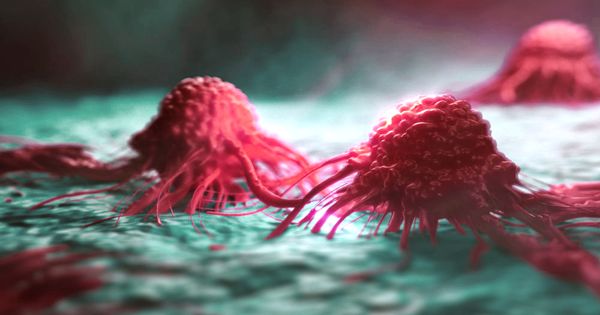Cancer in a patient is special. Understanding the genetic defects or variations in the DNA genome of a patient’s tumor is the key to unlocking the most successful treatment. Molecular profiling allows cutting-edge precision medicine for cancer care. Tumor profiling and hematological (blood) tumors can help patients access the most accurate cancer treatments and recovery schedules. The aim of precision medicine such as cancer profiling is to eliminate needless therapies with additional side-effects and to produce improved outcomes.
Researchers at the University Hospitals in Zurich and Basel, the ETH Zurich, the University of Zurich and the pharmaceutical company Roche have set out to enhance the detection of cancer by creating a state-of-the-art molecular biology network. The goal of the “Tumor Profiler” project is to build a detailed molecular profile of tumors in cancer patients, which has the ability to predict the effectiveness of a variety of experimental cancer drugs. It would also make it easier to provide tailored and better counseling recommendations to recovery doctors.
In the long-term, the Tumor Profiler approach aims to expand treatment options for patients in terms of personalized medicine. This involves addressing the question of whether certain patients would benefit from medications that do not belong to the standard range of oncological treatments but are approved for other types of cancer.
Three years ago, researchers started a large-scale clinical trial affecting 240 patients with metastatic skin cancer (melanoma), metastatic ovarian cancer, or acute myeloid leukaemia. A detailed analysis of these patients’ tumors provides researchers with a clear knowledge of the cell structure and pathology of each tumor. Researchers have recently published descriptions of their research architecture in an article in the journal Cancer Cell.
A tumor sample is collected by a biopsy and sent to a laboratory where approximately 600 cancer-related genetic abnormalities are examined using a DNA sequencing machine. Bioinformatics will then conduct a systematic study of vast volumes of data obtained from the genetic analysis of the tumor. A comprehensive report is developed and discussed with the patient’s care staff. The report could provide details on the related DNA, RNA, and protein expression changes found in the tumor of the patient. This knowledge may be used to select new drugs that address anomalies that drive cancer development in the patient.

Investigating at the single-cell level
What’s new about the “Tumor profiler” analysis is that it uses a suite of sophisticated tumor research techniques to obtain new knowledge by investigating how they can be integrated in a clinically useful way. The research is far from the current application of molecular biology approaches practiced in leading hospitals. “We’ve brought together all the cutting-edge technology available at ETH Zurich and the project partners. Working with physicians from Zurich and Basel, we’ve developed an advancement in oncology, one that serves the patients,” says Mitch Levesque, professor at the University Hospital Zurich and one of the corresponding authors of the paper.
The spectrum of research involves DNA, RNA, and protein cancer cells. Single-cell data provides researchers with an understanding of each tumor’s cell diversity, which includes not only cancer cells, but also immune cells. “We examine the entire tumour and its microenvironment,” says Andreas Wicki, a senior physician at Zurich University Hospital. Part of the study also involves practical studies in which tumor biopsies are administered with medications in the laboratory to determine how the drugs are working. Information from medical scans and other health information is also taken into consideration.
Informing treatment decisions
“We end up with vast amounts of data for each patient, which we prepare and analyze using data science methods,” says Gunnar Rätsch, professor at the ETH Zurich and another corresponding author of the publication. The results of the Tumor Profiler are then made available to the care doctors who address them at the interdisciplinary session of the Tumor Board. Since in genetics, comprehensive molecular studies are referred to as suffix-omics (genomics, transcriptomics, proteomics), this method, which includes several “omics areas” is called a multi-omics approach.
“We want the Tumor Profiler study to show that the widespread use of advanced profiling methods in oncology is not only possible but offers specific clinical benefits,” says Viola Heinzelmann, Head of Gynecological Oncology at Basel University Hospital and a senior author of the study. That is why the research also focuses on whether and how molecular analyzes could have affected physician decision-making.
The long-term goal of the Tumor Profiler strategy is to extend the care possibilities for patients in terms of customized medicine. This includes evaluating why any patients will benefit from therapies that do not fall into the normal spectrum of oncological medications but are approved for other forms of cancer.
The data collection for the Tumor Profiler analysis will be finished within two months, after which the testing team will review the data and present the findings. This research was funded in part by Roche and in part by participating universities and university hospitals.
















